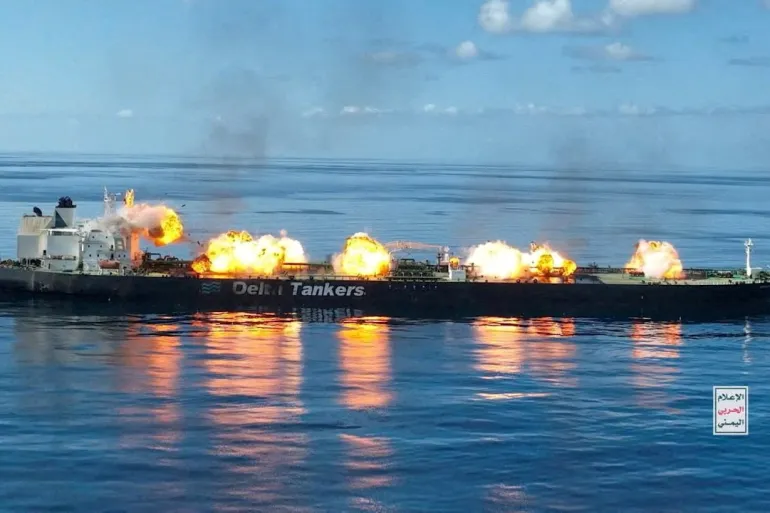Houthis Shift Strategy Amid Ceasefire Implementation
The Yemeni Houthi rebel group announced a significant shift in their military strategy, pledging to limit attacks on commercial vessels to those linked to Israel. This decision follows the enforcement of a ceasefire between Israel and Hamas to end the 15-month war on Gaza. The Houthis’ move is contingent upon the full implementation of the truce’s phased agreements.
The ceasefire agreement, which began on Sunday, aims to bring stability to a region that has witnessed severe disruption in global maritime trade. The Houthis, in their statement, indicated a willingness to pause hostilities in exchange for progress in the ceasefire’s execution.
Reduction in Attacks on Commercial Vessels
The Houthis have been involved in a series of attacks on commercial ships in the Red Sea and the Gulf of Aden since November 2023. Over 100 incidents were reported, including two sunken vessels and the loss of four lives among seafarers. These attacks occurred along the Bab al-Mandeb Strait, a strategic maritime chokepoint connecting the Red Sea to the Arabian Sea.
Shipping companies worldwide faced skyrocketing costs due to increased risk premiums, disrupted schedules, and rerouted voyages around Africa’s southern tip. Despite relatively low numbers of attacks compared to overall traffic, the economic impact on global shipping has been substantial.
Global Shipping Industry Responds with Caution
While the Houthi declaration has raised hopes for stability, the shipping industry remains cautious. Some of the world’s largest shipping companies suspended operations in the Red Sea, citing uncertainties over future attacks. Insurance firms and shipping executives have voiced hesitance to return to the route until stability is assured.
Additional costs for ships passing through the high-risk area, including elevated insurance premiums and increased wages for sailors, reached hundreds of thousands of dollars per voyage. These financial burdens highlighted the critical need for sustained peace in the region.
Impact of International Interventions
The conflict between the Houthis and various nations escalated over the past year. The United States and the United Kingdom carried out strikes targeting Houthi-controlled areas, aiming to deter further attacks on maritime routes. Sanctions were also imposed on the rebel group to limit its operational capacity.
In response, the Houthis launched attacks on Israel, prompting retaliatory airstrikes on power plants and ports, including Hodeidah port. This port is a vital hub for Yemen, underscoring the significant humanitarian implications of the conflict.
Economic and Humanitarian Stakes
The ceasefire has the potential to ease tensions in the region, allowing trade to resume and reducing the financial burden on global supply chains. If fully implemented, the truce could provide a path toward economic recovery for Yemen and restore confidence in the region’s maritime routes.
But the challenges remain. The continued presence of uncertainties regarding the Houthis’ commitment to limiting attacks has kept global shipping firms on edge. Rebuilding trust among industry stakeholders will take time and consistent adherence to the ceasefire.
Challenges to Long-Term Peace
While the ceasefire marks a significant de-escalation, ensuring lasting peace remains a complex task. The Houthis’ conditional pause on attacks hinges on the full implementation of the truce, leaving room for potential setbacks if trust falters. The region’s geopolitical tensions, amplified by competing international interests and local grievances, could reignite conflict if progress stalls. Moreover, rebuilding damaged infrastructure, securing humanitarian aid for Yemen, and addressing the root causes of instability will require a coordinated global effort and sustained diplomatic engagement.
A Path Toward Stability
The ceasefire offers an opportunity to mitigate disruptions that have plagued international trade and strained the economies of countries dependent on the Red Sea route. If successful, it could lay the groundwork for long-term stability and cooperative security measures in the region.
Observers agree that full compliance by all parties is crucial. For the Houthi pledge to translate into tangible peace, sustained efforts from international mediators and regional powers will be essential. As the ceasefire unfolds, the global community watches closely, hoping this marks a turning point in the troubled waters of the Red Sea.

